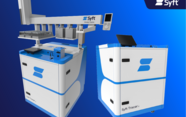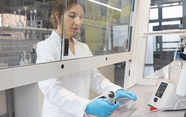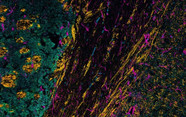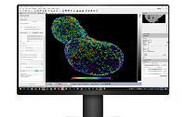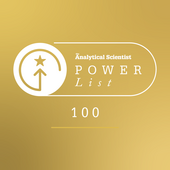Our Open Source Future: Hardware
Is free, collaborative development about to have a major impact on analytical instrumentation?

Open source. It’s a term we are all familiar with, certainly in the context of software. Anyone who has dabbled with the Linux operating system will have already recognized the benefits, challenges and pitfalls of stepping away from the mainstream and into a free, collaborative approach. Fewer will know that the world’s top ten supercomputers are based on Linux (Top500.org), which may shake the myth that open source equates to under-performance.
But surely, when it comes to analytical instrumentation, options are limited? Not so, says Joshua Pearce, an associate professor at Michigan Technological University, who is pioneering ‘FOSH’ or free, open source hardware.
“Most analytical scientists are familiar with the sometimes absurd prices we pay for scientific equipment,” says Pearce.
“In the old days you had no choice – you had to buy proprietary tools to participate in state-of-the-art research or develop everything from scratch.”
What broke the camel’s back for Pearce was a dishonest vendor. A salesman had promised Pearce that he would have the ability to make alterations to a highly specialized tool as he developed new materials. After a few months, a minor modification was needed but the vendor demanded thousands of dollars.
So Pearce set out to solve the problem without recourse to the manufacturer. The answer lay in combining three-dimensional printing with open-source software-driven microcontrollers. “For the same several thousand dollars we took some open-source designs and re-developed the tool we needed ourselves – and we have the source code so we can make changes in the future for free.”
There is currently no central hub for all FOSH scientific equipment but there are dozens (or even hundreds) of groups sharing projects on university and company websites or those specific to a particular subfield. Thingiverse.com features designs from all walks of life, which makes a quick browse most enjoyable. Pearce’s “things” are shared there for all to see.
“Now we have joined a virtuous cycle. As we share our designs of research equipment with others, they make them better and we all benefit,” says Pearce. “The genie is out of the bottle. Open-source development changes everything – there is no stopping it.”

Rich Whitworth completed his studies in medical biochemistry at the University of Leicester, UK, in 1998. To cut a long story short, he escaped to Tokyo to spend five years working for the largest English language publisher in Japan. "Carving out a career in the megalopolis that is Tokyo changed my outlook forever. When seeing life through such a kaleidoscopic lens, it's hard not to get truly caught up in the moment." On returning to the UK, after a few false starts with grey, corporate publishers, Rich was snapped up by Texere Publishing, where he spearheaded the editorial development of The Analytical Scientist. "I feel honored to be part of the close-knit team that forged The Analytical Scientist – we've created a very fresh and forward-thinking publication." Rich is now also Content Director of Texere Publishing, the company behind The Analytical Scientist.







